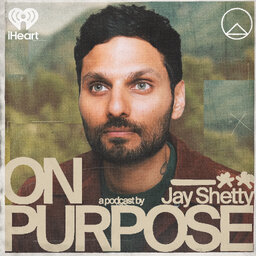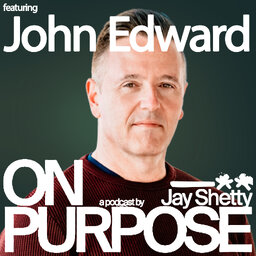Feeling Unsupported, Misunderstood, or Doubted? You Are Not Alone! (THIS 7-Step Method Will Help Silence the Self Doubt And Build REAL Confidence)
Has anyone ever doubted something you were excited about?
Have you ever felt judged for trying something different?
Today, Jay opens up about one of the most painful yet common experiences: feeling unsupported, unseen, or misunderstood by the people closest to us. He unpacks the psychology behind why others often don’t believe in us, highlighting the “false consensus effect” and the tendency for others to anchor us to who we used to be. But Jay reminds us this isn’t a flaw in our vision, it’s a sign that we’re ahead of the curve.
Jay also dives deep into how true confidence is built—not before we begin, but because we begin. He shares why strangers may become your strongest supporters, how to use resistance as a tool for growth, and why failing in public can be a powerful connector. From the competence-confidence loop to the importance of staying grounded in purpose rather than revenge, Jay outlines seven transformational shifts that can help anyone move from self-doubt to self-trust.
In this episode, you'll learn:
How to Keep Going When No One Believes in You
How to Stop Seeking Approval
How to Build Confidence Through Action
How to Handle Unsupportive Friends and Family
How to Prove Yourself Right Instead of Proving Others Wrong
No matter where you are in your journey, whether you’re just starting out, stuck in the middle, or feeling like giving up, remember this: you don’t need everyone to believe in you. You just need to believe in yourself enough to take the next step.
With Love and Gratitude,
Jay Shetty
Join over 750,000 people to receive my most transformative wisdom directly in your inbox every single week with my free newsletter. Subscribe here.
What We Discuss:
00:00 Intro
01:50 #1: Stop Pitching, Start Proving
06:54 #2: Rejection is Often a Protection
11:59 #3: Use Doubt as a Focus Filter
16:33 #4: Strangers are More Likely to Support You
21:15 #5: Create Before You're Confident
25:20 #6: Make Failure Public Strategically
28:08 #7: Focus on Proving Yourself Right
In 1 playlist(s)
On Purpose with Jay Shetty
My name is Jay Shetty, and my purpose is to make wisdom go viral. I’m fortunate to have fascinating …Social links
Follow podcast
Recent clips

Sales Expert Shelby Sapp: The Simple Sales Framework You Can Use in Work, Money, and Relationships (Follow THIS Method to FINALLY Get The Life You Deserve)
1:41:31

Stop Saying Yes When You Want to Say No! (Follow THESE Clear Boundaries to Protect Your Energy)
23:09

John Edward: Stop Trying to “Move On” After Loss (Use THIS Daily Practice to Make Peace Without the Answers)
1:29:30
 On Purpose with Jay Shetty
On Purpose with Jay Shetty